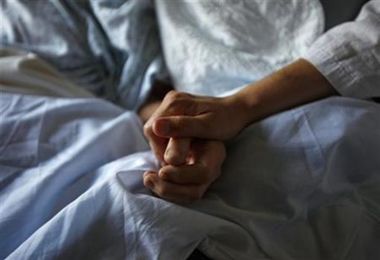Chaplains provide spiritual care online for Christians with serious health problems

Are you suffering from a serious health problem? Are you wondering why you are experiencing this? Do you need spiritual care? Don't worry, help is just a click away.
Christians diagnosed with serious illnesses or those dealing with challenges of ageing can now find spiritual support online through specialised websites such as chaplaincareforveterans.org, chaplainsonhand.org and cantbelieveihavecancer.org.
Experienced chaplains of diverse affiliations work for these sites round the clock, offering free counselling through Skype or by phone. They can address various problems such as spiritual distress, confusion about personal spirituality and end of life decisions.
Rev. Eric Hall, president of the HealthCare Chaplaincy Network (HCCN), is the person behind this effort. His New York-based nonprofit organisation launched these websites last year, knowing that a lot of individuals are in need of spiritual support when dealing with health and life issues.
"When people are faced with a crisis, somewhere in their minds and in their hearts, they ask questions about why this is happening to them. We face our own frailty, and people want an answer and to be able to talk it out," Hall explained.
He added that chaplains like him must respond to the changing times and must adapt with technology to be able to provide spiritual care to as many people as possible during the modern age.
Hall said he is thankful for the warm response to the spiritual care his group offers online. For instance, cantbelieveihavecancer.org attracted 200,000 unique visitors during its first four months.
The increasing popularity of these initiatives also highlight the growing prevalence in tele-health, increased outpatient care delivery and shorter hospital stays, according to the chaplain.
Lisa Anderson-Shaw, the University of Illinois Hospital and Health System's Director of Clinical Ethics, meanwhile recognised the importance of the spiritual care being extended by Hill's group online.
"After patients are no longer in the hospital, many find themselves without the spiritual support they had while hospitalised," Shaw explained.
"Many rural areas may not have a church. Or, the closest church may be many miles away, making homebound persons unable to find the spiritual care they wish to have. Privacy may also be a concern for patients and families who live in small, rural communities and wish to keep health information more private," she added.











